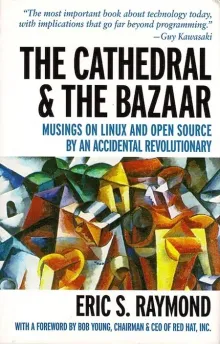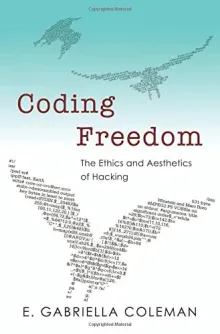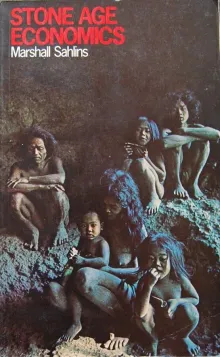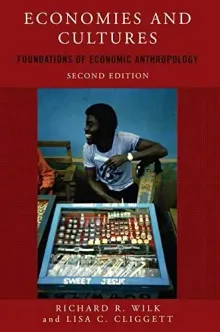I got the chance to chat with Henry Zhu on his Maintainers Anonymous podcast.
It’s a show about people who maintain things in the world. Whether it’s code, cities, infrastructure, or museum archives, someone has to keep the decks clean and the engine stoked.
I’m not a maintainer (the only thing I reliably maintain is an obsessive tea habit), but I went on to chat to Henry about the overlap between the open source software and the anthropological theory of Gift Economies The Gift Economy
Illustrated notes on the idea of Gift Economies and cultural historys of economic exchange .
Gift theory, reciprocity, and economic anthropology are all side obsessions of mine. I originally trained as a cultural anthropologist, and it’s still an enormous part of how I understand and operate in the world.
Like any good cult, once you’re indoctrinated you can never leave.

Henry and I began discussing the parallels between gift economies and open source software (OSS) last summer.
At the time I barely knew anything about OSS. Which made me fairly typical. 99.9% of the world haven’t a clue about the rich, dramatic cultural history of Linux, or Xerox PARC, or the browser wars. Despite the fact 99.9% of the software we all depend upon is built using open source projects. It’s invisibility and pervasiveness alone makes it worth a closer look.
Henry earned his stripes in the OSS world as the core maintainer of Babel What the Fork is Babel?
Illustrated notes on how Babel works - an open-source javascript transpiler How Are Compilers & Transpilers Different?
Illustrated notes on how compilers and transpilers are different that’s used by the vast majority of javascript-based websites.
The Babel project, and Henry as its steward, is a fascinating case study in the open source software economy and where it’s headed.
Not sure what Babel is?
Take a quick look at my WTF is Babel? What the Fork is Babel?
Illustrated notes on how Babel works illustrated explanation
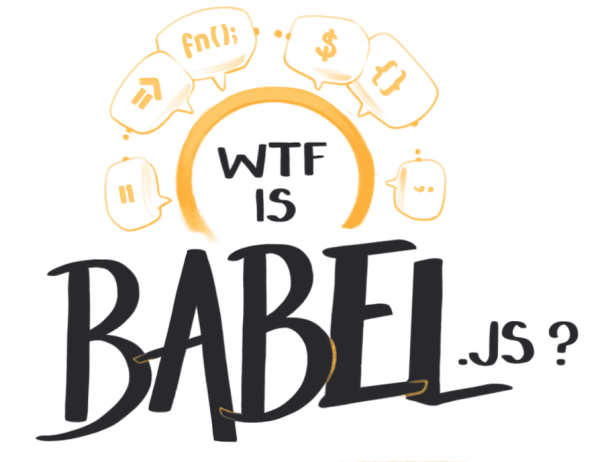
Our chat is wide ranging discussion where we’re both thinking out loud and exploring ideas, rather than coming to insightful or profound conclusions. We’re doing some follow-up episodes in the coming months as well.
Subscribe to the podcast if you don’t want to miss them.
Things we Mention in the Episode
- What can Open Source Software learn from the anthropology of gift economies?
- Emic vs. Etic types of research in anthropology
- The three types of reciprocity proposed by anthropologist Marshall Sahlins: Generalised, Balanced, and Negative. Originally outlined in his 197254ya book Stone Age Economics
- The Kula Ring of the Trobriand islands as the prototypical anthrolopogy example of a Gift Economy
The Gift Economy
Illustrated notes on the idea of Gift Economies and cultural historys of economic exchange . - The All Contributors system that acknowledges open source contributions for a wide range of skills
- Negative vs. positive freedom - Freedom from external constriants vs. the ability to act out of free will
- New tools that are enabling OSS communities – Patreon , Github Sponsors , and Open Collective
- How can we make the interactions and exchanges between contributors and maintainers more personal and relationship-based?
- Developers have enourmous cultural power in the world that is rarely acknowledged in the community. What developers value and believe comes out in what tools get built, which in turn shapes how culture evolves.
- The quantified self
Tracking Humanity
The introduction to my thesis on the Quantified Self movement and the culture of self-tracking movement and the presumed value of quantifiying everything. - Epistemology and how we know what we know. The value of tacit, subjective truth in addition to explicit, objective truth. We’re in a historical moment where the emphasis on the disembodied rationalist view has drowned out the value of embodied, personal knowing.
- Personal Knowledge by Michael Polanyi
- Metaphors We Live By by George Lakoff
- Traditional hacker culture glorifying programming as a cerebral, disembodied activity. We haven’t yet figured out how to make our digital tools embodied. Which carries over into how we experience social relationships through them.
- Tools for Conviviality by Ivan Illich
- The more professionalised skills become, the harder it is for people to join. Programming at least tries to knock down those gatekeepers and trumpets the narrative that we roll out the welcome mat for people. Open source often acts as that open door.
References and Further Reading
Papers and Talks
- Open source beyond the market by David Heinemeier Hansson
- The Moral Economy of Digital Gifts by Dave Elder-Vass
- The Plural Economy of Gifts and Markets by Ioana Negru
Books
